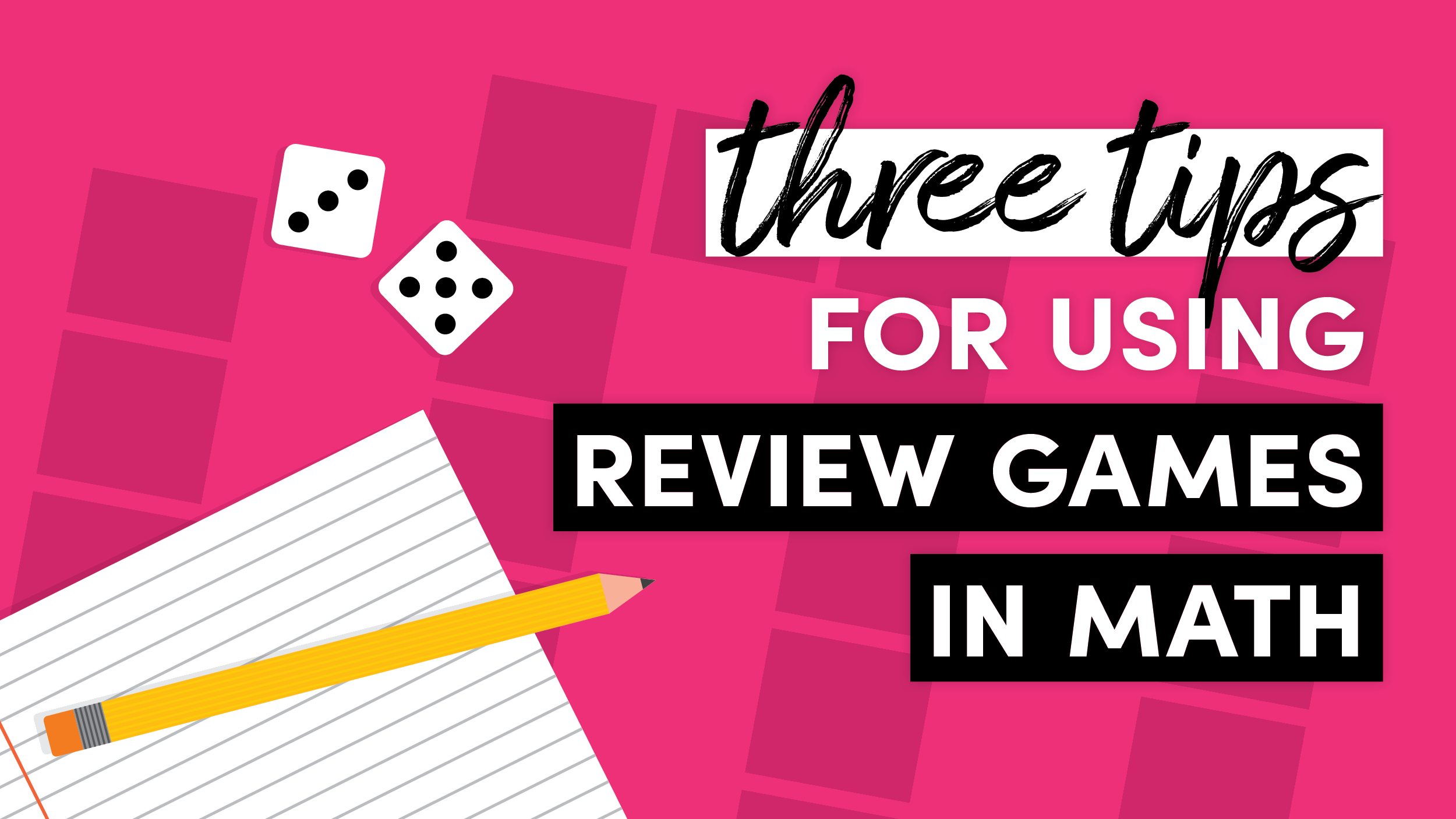3 Tips for Using Review Games in Math Classrooms
I love using review games in math because the competition provides instant engagement and motivation (without sacrificing the purpose of the review game…learning). Unfortunately, not all review games are made equal and some games place a high value on the wrong things (i.e. speed instead of thinking).
watch the video...
I think there are definite benefits to these games—such as learning to work together as a team, high engagement, etc.—but I also think some games can be destructive to students’ confidence and self-esteem in math and aren’t as effective from a management perspective. This set me on a mission to create new review games that have all the benefits of competition but keep a positive and hard-working culture in my math classroom.
I came up with three things I consider when choosing or creating new math review games…
I choose review games that do not place a focus on speed.
This is a non-negotiable for me in math. 1) I believe two students can have an equal understanding of a math concept and still complete the same task in two very different amounts of time and 2) I do not want students to sacrifice deep thinking for the sake of winning a game.
When review games are focused on getting the right answer before someone else or getting as many right answers as possible before another person or group, inevitably students begin to internalize that speed is what makes you good or bad at math. On top of that, students typically begin throwing all the strategies we’ve taught them out the window just to win a review game and be faster than their opponents. Who needs to take the time to read the entire problem anyway? Checking our work? There’s no time for that!
It is possible for students to compete while still having the necessary time to think deeply about the math they are doing. We just have to be aware of this when selecting review games. It simply isn’t fair to penalize our thorough thinkers because of the time it takes them to do the math.
I love review games that don’t have a clear “leader” until the end.
I’ve noticed with some review games that students make assumptions about themselves and others as learners based on who is in the lead or who is always in the lead. If they see a certain student or group of students in the lead, they usually assume that they are the “smart kids.” If they are the student or group of students in last place, they frequently take on negative feelings about themselves as math learners. This can be destructive and no review game is worth this, even if it only impacts one student.
I find that if I play a review game where students can tell who is in the lead or who is in last place, it is better if they are playing in groups because they are less likely to take on those negative feelings about themselves personally. I also find that using games that involve “luck” is helpful because the winner may be the person who just happened to get the right rolls of the dice.
I plan review games that are time-based and have no “outs.”
This decision is strictly for management purposed. I like games that are time-based instead of games that end when a student wins or loses because this gives me control over how long the game lasts. I can’t be the only one who has had a game end way sooner than you expected it to or had a game last waaaay too long.
I also enjoy games with no “outs” because then I don’t have to figure out what a student is going to do if they get “out” of the game. There is no motivation in getting “out” and then being told that you still have to complete the work while everyone else finishes playing.
I’ve found that review games where students are earning points and the winner is determined after a set amount of time have just as much engagement (if not, more) as the review games where students are competing to be the first to win.
Here are review games that I love!
I’m sure at this point you are wondering what games I actually do for review since I may have eliminated quite a few with my list above! I have had MANY review games on rotation and my kids absolutely LOVE every single one of them!
Some games students can play on their own with little involvement from me which allows me to pull students and work with them in small groups. Other games require facilitation from me but we can do them together as a whole class and every single student remains engaged.
One of my favorite aspects of some of these games is how easy it is to differentiate students’ work even though everyone is playing the same game. If you’re looking for review games that get students excited about math practice and encourage collaboration, you’ll want to check these out!




If you’re frustrated because your students just aren’t engaged in your math lessons, you’re not alone. I’ve been there too, and the good news is that it’s easy to fix! In this post, I share four free, easy-to-implement strategies that help you quickly boost engagement in your math classroom.